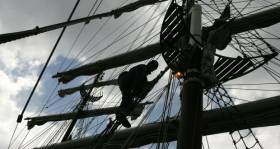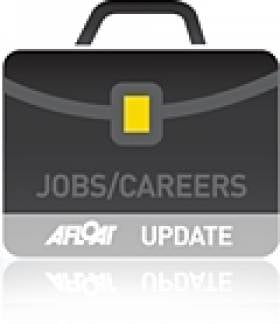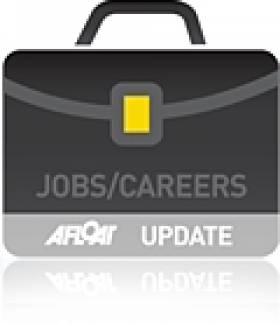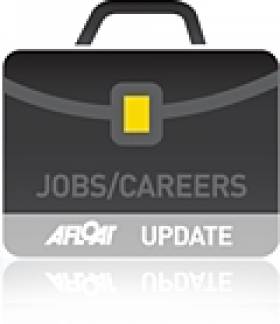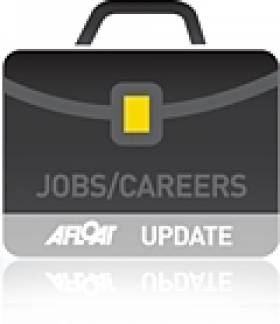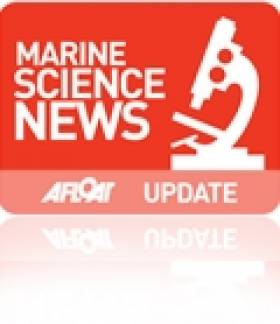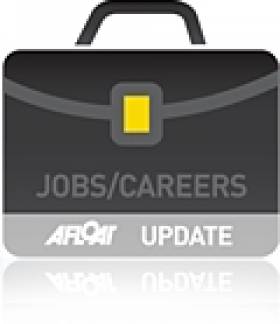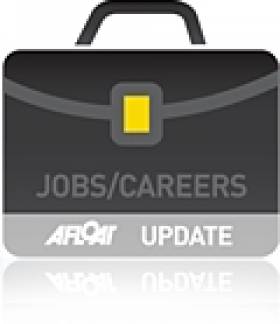Displaying items by tag: Jobs and Careers
Approval of Maritime Course Delayed ‘Puts Jobs at Risk’
#CourseDispute -The National Maritime College of Ireland is in dispute with marine authorities in that it is putting the livelihoods of up to 400 seafarers and over 20 lecturers at risk, it is claimed.
The Irish Times writes that from January 1st next year, all mariners will be required to have completed a programme of mandatory refresher training in basic sea survival, boat-handling and firefighting.
However, the Cork-based National Maritime College of Ireland says a submission it made a year and a half ago for approval of its refresher courses has yet to receive formal approval from Irish authorities.
While the college says the UK’s Marine and Coastguard Agency has recognised the certificates since last August, the Irish equivalent – the Marine Survey Office – has refused to do so.
Further coverage of the story can be read here.
Marine Pilot Vacancy At Dublin Port
#Jobs - The Dublin Port Company invites applications from marine pilots for inclusion on a panel from which future permanent and temporary vacancies in the Dublin Pilotage Service will be filled.
The panel will be active for a period of two years. Applicants must be a holder of a valid STCW Level A-II/2 certificate of competency and must have extensive ship-handling experience.
The closing date for applications is Friday 4 December 2015. Details on how to apply are available on the Dublin Port website HERE.
Marine Institute Recruitment Drive Closing Soon
#Jobs - Applications close this coming Friday 13 November for a number of scientific management and research positions with the Marine Institute.
Those interested in various Scientific & Technical Officer roles – in Project Support, Ocean Modelling, Observing Systems (JERICO Next), Habitat Mapping and the 'Value Added' strand of the INFOMAR programme – have until 4pm this Friday to submit their applications.
Also closing on the same day are the positions of Hydrographic Data Processor (INFOMAR), Team Leader on infrastructure projects such as EMSODEV and FIXO3, and a vacancy for a post-doctorate researcher on creating knowledge for precision fisheries management.
Prospective applicants have a little longer for the vacancy in Administrative, Research & Project Support in the Stagaire programme (closing Wednesday 18 November) and the last available spots in the two-year full-time Masters of Commerce Scholarship in Strategic Marketing (closing Monday 30 November).
Deadlines Approaching For Marine Institute Roles
#Jobs - Deadlines to apply for a number of jobs with the Marine Institute are coming up over the next two weeks.
Those interested in the role of Oceanographic Services Manager have until 5pm today (Wednesday 1 July) to submit their applications.
Tomorrow (Thursday 2 July) at 5pm is the closing date for two Team Leader positions, in Data Management and Software Development.
Graduates interested in the role of Economic Researcher should submit their CVs and cover letters by 4pm on Friday 3 July, which is also the closing date for the Cullen Fellowship for PhD students in ocean observation. Applicants for the Communications Stagiaire position have until 5pm on the same date.
Meanwhile, marine science graduates interested in the PhD opportunity in Ocean Colour and Dynamics in the Eastern Atlantic from Satellite Observations (OCEANS) have until 5pm on Wednesday 15 July to submit their applications ahead of interviews commencing the following week.
For the latest vacancies see the Marine Institute website HERE.
Vacancy: Business Development Manager at the IMDO
#VacancyIMDO – The Irish Maritime Development Office (IMDO) which was established by Statute in December 1999 and commenced operations in July 2000, is currently inviting applications for the position of Business Development Manager.
The Business Development manager will be responsible for delivering new clients in a pressurised and competitive environment.
For further details of the job description click HERE and as how to apply. Noting the closing date of applications must be received by 17:00 on Friday 23rd May 2014.
'Open Day' at National Maritime College of Ireland
#NMCIopenday - An 'Open Day' at the National Maritime College of Ireland (NMCI) is to held on Tuesday, 22 October 2013 between 10:00 to 15:00hrs.
Representatives from international shipping companies and maritime organisations will be available to provide information about careers in the maritime industry.
These companies provide employment and sponsorship to students undertaking courses offered by the National Maritime College of Ireland. Throughout the day there will be tours of the state of the art training facilities at the college including the multi-million euro ship simulators, sea survival centre and engineering workshops.
Presentations by the maritime companies of their career opportunities.
An events' hall to visit international maritime companies and organisations.
Presentation for schools and students on course opportunities at the NMCI.
Enquiries and group bookings: Tel: (021) 433 5607. E-mail: [email protected] National Maritime College of Ireland, Ringaskiddy, Co Cork. For more about the NMCI visit: www.nmci.ie
Expansion On The Cards For National Maritime College
#NMCI - The National Maritime College of Ireland (NMCI) is to expand into Asia and the Middle East, as The Irish Times reports.
The Cork Harbour-based college, which provides training and education for the Merchant Marine and non-military needs of the Naval Service, is set to provide training and consultancy services in the Gulf region, Vietnam and Malaysia via its commercial wing NMCI Services.
That was the message from Dr Brendan Murphy, president of the Cork Institute of Technology (CIT) of which the NMCI is a constituent college.
Speaking at a conferring ceremony for new graduates, he added that 10 full-time research posts created at the NMCI in the past year represented a "growth in R&D" that "has warranted the establishment and branding of NMCI's own research centre, something which will take place in the very near future."
Marine Institute Invites Applications for Summer Work Placements
#MarineScience - The Marine Institute is inviting students to apply for a number of work experience placements in many exciting areas for this summer 2013.
The list and short description of the positions (available in a Word doc HERE) include 26 placements for 15 work titles.
The bursaries are worth €2,200 each for an eight-week placement based in various locations including the Marine Institute in Oranmore, Co Galway; Newport, Co Mayo; Harcourt Street in Dublin; and ports around the country.
The Marine Institute’s Bursary Programme provides valuable practical experience for budding marine scientists in areas of research such as marine fisheries, salmon management, aquaculture, environment, communications and the library.
The Bursary Programme is aimed at undergraduates of universities, institutes of technology and national institutes for higher education. The scheme is strictly limited to undergraduates who have completed two years' study in a relevant discipline.
Previous bursars have gone on to work in the Marine Institute (including two directors of the institute), Bord Iascaigh Mhara (BIM), regional fisheries boards, county councils, pharmaceutical companies and State laboratories, with some going as far afield as the EPA in Sydney, Australia and some now running their own companies.
To apply for the Summer Bursary Programme:
- Please check out the 15 bursary titles on offer (via the link above)
- Select the two bursaries that interest you most and in order of preference
- Complete the Marine Institute Bursary Application Form 2013 and return it FAO Annette Jordan, Marine Institute, Furnace, Newport, Co Mayo
The deadline for receipt of applications is 8 February 2013.
Opportunity For a Director With The Marine Institute
#Jobs - The Marine Institute is seeking applicants for the position of Director of Marine Environment & Food Safety Services.
The director will lead an experienced team responsible for the delivery of a number of critical functions in support of seafood safety, fish health and the protection of the marine environment.
The successful candidate will work closely with Government departments, external parties and key stakeholders in the effective management of scientific services and provision of policy advice.
The director will also provide strategic direction in the targeting and management of competitive research projects funded nationally and internationally.
Candidates will have successfully managed programmes, people and resources at a senior and strategic level. You will be able to demonstrate relevant experience and qualifications as detailed in the job specification to include a primary degree complemented by at least seven years post-qualification work experience.
A detailed job description can be found at the Marine Institute website HERE. The closing date for receipt of applications is 5.30pm on Tuesday 5 February 2013.
The Marine Institute is an equal opportunities employer.
Careers at Sea Expo Returns to Galway Tomorrow Night
#JOBS & CAREERS - Anyone considering a change of career into the marine sector would do well not to miss the Careers at Sea Expo in Galway.
Minister of State for Training and Skills Ciaran Cannon will be on hand to open the latest Careers at Sea Expo in Galway city tomorrow evening (Thursday 1 November 2012).
The event, launched earlier this year by local sailing school Bow Waves, will surely be invaluable to anyone considering a change of career to the marine industry, or even seeking opportunities abroad.
As the school's Barry Conlon said last year, he believes there is a worldwide demand for qualified marine personnel and to help people take advantage of these opportunities by showcasing the range of careers available, and how to gain entry into the field.
The Careers at Sea Expo is at the Pillo Hotel on Headford Road north of the city centre, just before the Kirwan Roundabout. The evening runs from 7pm till 10pm (registration at 6.30pm) and is open to the public, with tickets costing only €10.
To reserve your place at the event contact Caroline or Alan on 091 560 560 or e-mail [email protected].



























